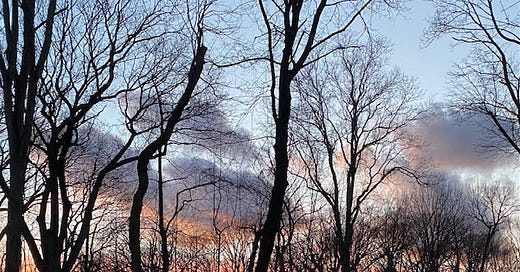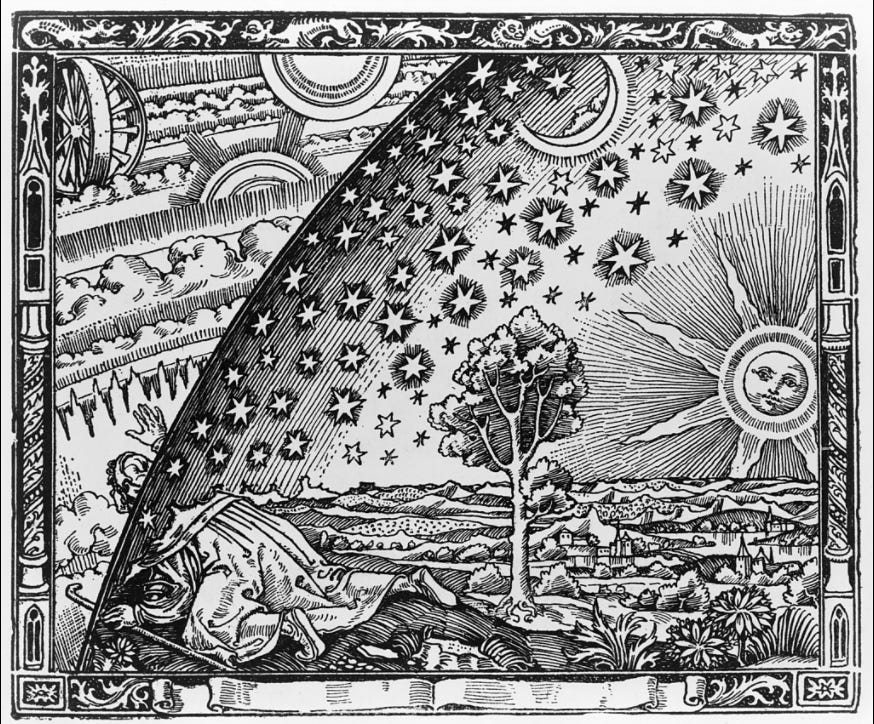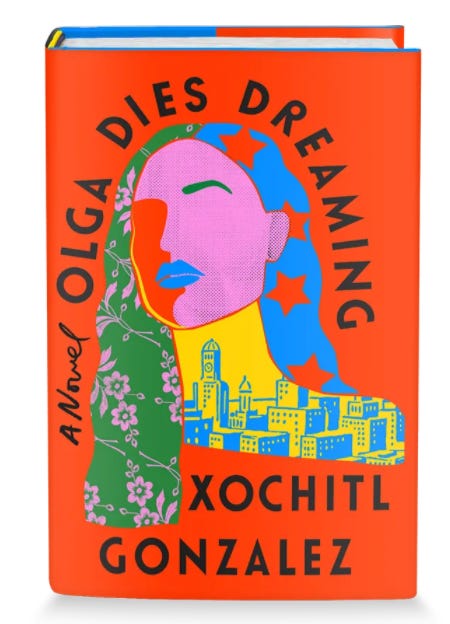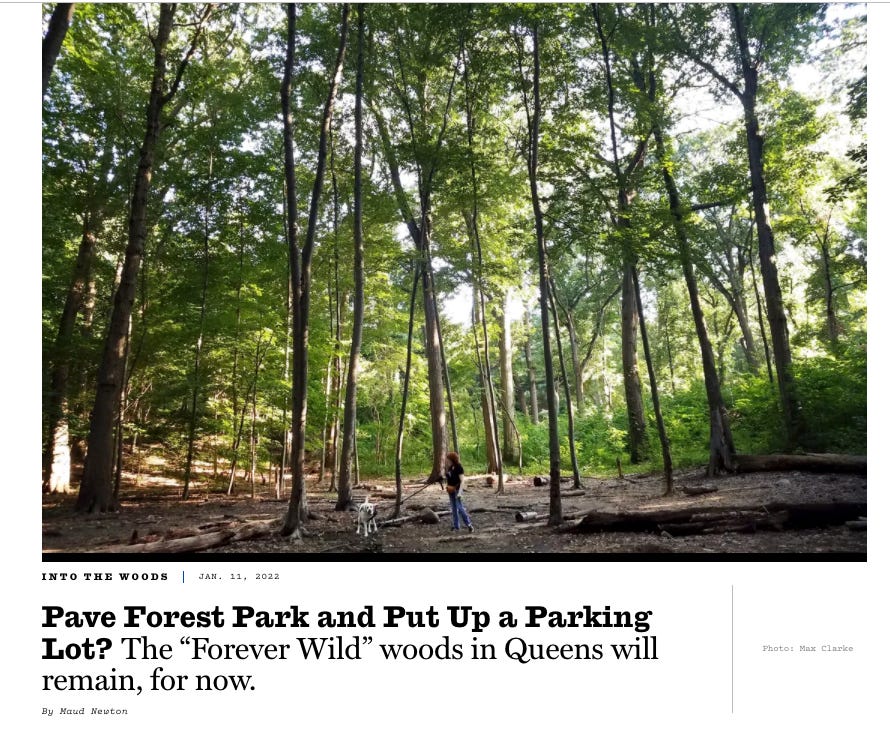Hi Friends,
Here’s hoping January is landing as peacefully as possible for you. At my place we’ve been drinking too much tea and noticing the days slowly getting longer. In this newsletter: freedom through truth; some book news; a giveaway of yaupon holly tea and an advance copy of Ancestor Trouble; things I’ve written, things of note, and things I’ve enjoyed or am anticipating.
“This strange and awful time was the happiest of my life,” says a character in Station Eleven (the series). I suspect anyone with a melancholy bent can relate. It’s one way of describing how I feel about the time I spent writing Ancestor Trouble.
What often gets lost in discussions about pondering the wrongs of ancestors is the positive transformation that’s possible through wrestling with their actions open-heartedly over time. Acknowledging what our forebears did — and the legacy of those actions in us individually and for us collectively — is a continual process that can bring access to those same ancestors’ gifts for us. That’s my experience, anyhow.
“The truth will set you free,” something Jesus says in the Bible, may be the simplest way to say what I mean. It’s my favorite insight attributed to him, part of a pair of verses in which he’s advising his disciples to know and abide in his word. Many Christians would say that it’s impossible to sever the part I’ve taken to heart from the context of his word as they interpret it. But I don’t identify as Christian, despite growing up in the church, and my view of Jesus these days accords with one Elaine Pagels describes in The Gnostic Gospels: that Jesus advocated for finding truth by knowing ourselves. Some gnostic teachings depict self-knowledge as knowledge of the divine. In the Dialogue of the Savior, Matthew asks Jesus to reveal “the place of life,” of “true light.” Jesus says that everyone “who has known himself has seen it.”
“The truth will set you free” has always held deep wisdom for me. And for that reason, rather than being a miserly, judgmental, closed-off process, I’ve found work around my ancestors to be an incredible, sometimes even intoxicating opening, freeing me from unhealthy allegiances, clarifying how I want to live with the time I have in this form on the planet. This work has been a natural extension of years of therapy and a sometimes erratic meditation practice. The process of reckoning with and reconciling myself with my ancestors will never end. But when I accept its ongoing nature and open myself to what it can teach me, it feels like an enlargement into possibility rather than a clenching against the past.
I find that aspect of Ancestor Trouble harder to convey in conversation than many related aspects I spoke about with my friend Carolyn Kellogg in a recent interview about the book. Here’s part of what I said:
This is real. This is in my family. This is something that I come from, and this is our whole culture. I'm not saying that every single person in this country, that all of our ancestors were instrumental in enslaving people, or participating directly in colonization, but it is a huge part of our country's history that we need to acknowledge. And what better way to do that than to research and acknowledge it in our own families? To me, especially at this time when every acknowledgement of slavery is being classified in some places as Critical Race Theory and outlawed, what could be more powerful than each of us who knows we have this history stepping forward and saying, my ancestors did this. I come from this.
By “us,” I'm speaking broadly, and I'm also particularly talking to my fellow white people. Maybe our ancestors weren't here at that time, but we've still benefited from the privilege that has been afforded to us because of that system. Coming forward and saying, I come from this and I feel a responsibility to think about what that means for me, how I can be an ally to people who are descendants of people that my ancestors enslaved or oppressed or cheated. And how I can work against those white supremacist underpinnings of our society. I know that using the term “white supremacist,” some people find it problematic, some people find it offensive. In my case, because of my father, it was so explicit that I may be more comfortable using it.
I think what happens sometimes when we get in [debates about] Critical Race Theory [is] that we’re lecturing and talking down to people instead of dealing with the emotional reality, you know. A little more than 150 years ago, my ancestors were enslaving people. That's something that I need to acknowledge.
The whole conversation is available at Bitter Southerner’s new project, Salvation South. I’m grateful to Carolyn for taking the time to talk to me. I’m also grateful, excited, and frankly astounded to see Ancestor Trouble included on most-anticipated lists from TIME, Oprah Daily, Esquire, Book Page, Literary Hub, and The Millions. My friend Alexander Chee was also kind enough to shout out the book on Literary Hub and Twitter, where he compared Ancestor Trouble to “following a lit fuse through the dark.” I have so often felt that way about Alex’s work; it’s a thrilling and mysterious confirmation when one of your favorite muses likes your work in return.


Giveaway
This month’s giveaway is an advance copy of Ancestor Trouble and some green and fire-roasted organic yaupon holly tea (that I purchased) from Yaupon Brothers. Yaupon holly, the only known caffeinated plant native to North America, was consumed by almost all people native to this continent who lived among it. It thrives in extreme weather and extreme soil conditions and is a sustainable source of caffeine. It’s been shown to have antioxidant and other health benefits. Its blossoms attract butterflies, and its berries feed birds and other wildlife.
To enter, preorder Ancestor Trouble or officially request it from your local library (here are some tips on asking a library to order a book). All preorders or requests, before or after this newsletter, count. If you’d like a signed or personalized copy, order at Greenlight Bookstore and include the details of your request in your order comments at checkout. Send the receipt of purchase or library request in reply to this newsletter or as a DM to me at Twitter or Instagram. Entries must be received by Thursday January 20, at 11:59 PM (Pacific). U.S. residents only (sorry!). The winner will be notified by email or (as the case may be) DM.
There’s also a Goodreads giveaway running for about nine more hours.
Written, Of Note, Enjoyed, or Anticipated
My copy of Xochitl Gonzalez’s Olga Dies Dreaming didn’t arrive quickly enough, so I listened to the audiobook and it was fantastic: a novel about a Puerto Rican family in gentrifying Sunset Park, mostly from the perspective of a brother and sister whose activist mom left them with their grandmother to devote herself to her movement. I loved it. Hulu adaptation coming. I also loved Abbott Kahler’s upcoming novel, Where You End, which I’ve been privileged to read in draft form.
Now I’m reading Taylor Harris’ excellent This Boy We Made (excerpted at Time) and listening to Jessamine Chan’s harrowing The School for Good Mothers, and highly recommend both. In research I’m reading Britain After Rome: The Fall and Rise, 400-1070. Interesting, approachable, and informative so far.
I wrote a piece for Curbed about learning, after my assemblywoman proposed a parking lot on what she called “vacant park land” at the edge of Forest Park, how precarious NYC’s “Forever Wild” protections are.
To my own surprise, I’ve started blogging a bit again. I still feel satisfied and vaguely cleansed after posting three-paragraph public contemplations, all the more so now that old blogs go largely unread. I especially enjoyed writing one post at the start of the year on my own imagination as a refuge.
Julie Zauzmer Weil compiled a database of every member of Congress who enslaved Black people.

“I Searched for Answers About My Enslaved Ancestor. What I Found Was More Questions,” by Imani Perry, whose South to America (out January 25) I’m eager to read.
“What should I do with my portrait of a slaveowning ancestor?”
Theories are developing about Neanderthals’ last common ancestor with Homo sapiens. The idea that Neanderthals had inferior cognitive ability to Homo sapiens is probably a myth. Neanderthals may have cleared a European forest with fire or tools. Scientists say ancient human DNA can be recovered from the cement made by head lice to stick eggs to hair.
The World of Stonehenge: The British Museum’s Stonehenge show pulls in related artifacts from across Europe: There’s a sense of Stonehenge as “‘quintessentially British, but actually this was a world of interconnection and interconnectivity… you can’t understand Stonehenge without understanding its European setting.’”
“Mining interests drove [the Nez Perce people] out of their homelands and fouled their rivers and ancestral hunting grounds…. [A proposed ‘clean energy’] mine represents another existential threat…. The Nez Perce are not alone.”
To Those Who Were Our First Gods, a poetry collection by Nickole Brown, was a gift from my friend Carrie that I devoured and recommend to you. “No Ark, for Mary Oliver,” begins “Ain’t no foxes here, Mary.”
“‘You walk silently through these woods, and there’s a spirit that comes out.’” I savored Jonny Diamond’s essay for Smithsonian Magazine on an old-growth forest in Massachusetts.
Nicole Chung’s I Have Notes! newsletter at The Atlantic is well worth a subscription.
Don’t miss Isaac Fitzgerald’s delightful conversation with Emily St. John Mandel.
Roxane Gay is funding the Joel Gay Creative Fellowships, three paid Substack newsletters in honor of her brother. Applications are due February 10.
Martin Luther King, III urges us to remember his father by protecting voting rights.
All good wishes until next time,
Maud









Pre-ordered from Greenlight! (the tea sounds amazing) Details:
ORDER SUMMARY:
Order number: 134386
Name on order: Sarah Filzen
Items in order:
1 × Ancestor Trouble: A Reckoning and a Reconciliation
Shipping/pickup method: UPS Ground Shipping + Handling